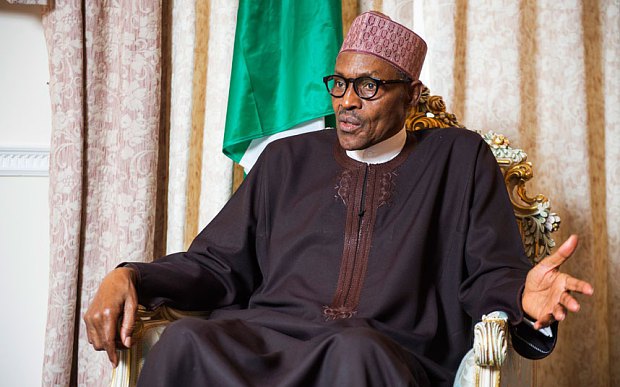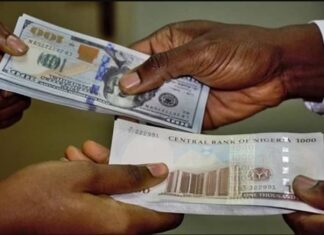There has been no shortage of praise for Nigerian President Muhammadu Buhari’s anti-corruption war, which has led to the arrest of a string of high-ranking former government officials.
The crackdown centres on an alleged $2.1 billion (1.9 billion euro) “arms scam”, where money earmarked for weapons to fight Boko Haram is said to have been diverted for political purposes.
But experts say the arrests and ongoing trials do little to tackle systemic corruption in the defence sector that helped allow the Islamists to seize swathes of territory in the country’s northeast.
Former national security advisor Sambo Dasuki is accused of overseeing a sprawling embezzlement scheme that saw “phantom contracts” awarded for personal gain, as under-equipped and demoralised troops fought better-armed militants.
But Dasuki’s trials have a narrow focus: whether defence money was diverted to former president Goodluck Jonathan’s party to fund his failed 2015 re-election campaign.
Campaigners say none addresses the companies behind the procurement deals or the lack of oversight that makes the sector ripe for fraud, leaving the door open to future arms scams.
“The major issues within the defence sector have not really been sorted,” Eleonore Vidal de la Blache, from Transparency International’s Africa defence and security programme, told AFP.
“Just because you prosecuted a few rotten apples it doesn’t mean that you’ve massively transformed the sector.”
Shielded by a secretive status quo, corruption thrived while Boko Haram tore through Nigeria in 2014, capturing territory the size of Belgium and killing over 2,500 people — one of the most bloody years of the insurgency, according to Human Rights Watch.
Nnamdi Obasi, a senior analyst with the International Crisis Group, said the problem was “particularly serious” in the defence sector as national security is invoked to prevent scrutiny.
“That, coupled with very poor leadership, administration and oversight, left the system to deteriorate to an unprecedented depth,” he added.
In this murky environment, shady arms deals conducted with military merchants around the globe thrived.
One company singled out by Buhari’s presidential committee probing arms deals is Societe D’Equipements Internationaux (SEI), which has offices in Abuja and Paris.
Between January 2014 and February 2015, the presidency alleges Dasuki awarded SEI contracts worth $930,500,690 but the company failed to deliver operational equipment — if it arrived at all.
“Had these funds siphoned to these non-performing companies been properly used… thousands of needless Nigerian deaths would have been avoided,” the presidency said in January.
But SEI managing director Hima Aboubakar, who describes himself as a “big advisor in the security field”, maintained he only has Nigeria’s best interests at heart.
“We fight against terrorism, against Boko Haram,” the businessman told AFP, seemingly unperturbed by the presidential probe into the affair.
“It’s good to investigate all the companies, everybody who is a businessman needs to be investigated,” he said. “If you aren’t being investigated you aren’t serious.”
Aboubakar has not been charged in connection with the alleged arms scam.
Anti-corruption campaigners fear Nigeria’s justice system is too weak to secure convictions against individuals in the defence industry — and there have already been botched cases.
Austrian security contractor Wolfgang Reinl, who worked with Abuja-based GTESC Limited, was detained last December by the Economic and Financial Crimes Commission without a court order.
Reinl, one of several individuals listed by the presidency over deals characterised by “irregularity and fraud”, was released in February.
He later sued the EFCC for violating his fundamental human rights.
In May, a judge ordered the EFCC to pay a fine of 10 million naira and banned the anti-graft agency from arresting Reinl again, compromising any future investigation.
“We’ve not been able to secure a conviction,” said Olukayode Majekodunmi, deputy director for the Socio-Economic Rights and Accountability Project, a civil society group.
“That says so much about the fact that the system is not able.”
At the same time, there are fears about the robustness of the Nigerian judiciary.
“The judicial system in Nigeria is very weak, it has been polluted by corruption,” said Debo Adeniran, head of the Coalition Against Corrupt Leaders.
“There are so many saboteurs that are thwarting the efforts of the government.”
As it stands, defence equipment deals in Nigeria take place behind closed doors without much public consultation or scrutiny.
The Public Procurement Act 2007, which governs procurement procedures, does not usually apply to military purchases.
Politicians have been loath to question spending in parliament.
In June, the Nigerian military held a seminar aimed at “totally overhauling and realigning their hardware acquisition processes”.
But there has been little indication policy reforms will happen anytime soon.
“Buhari hasn’t said anything major,” said de la Blache. “We are optimistic but more needs to be done.”













